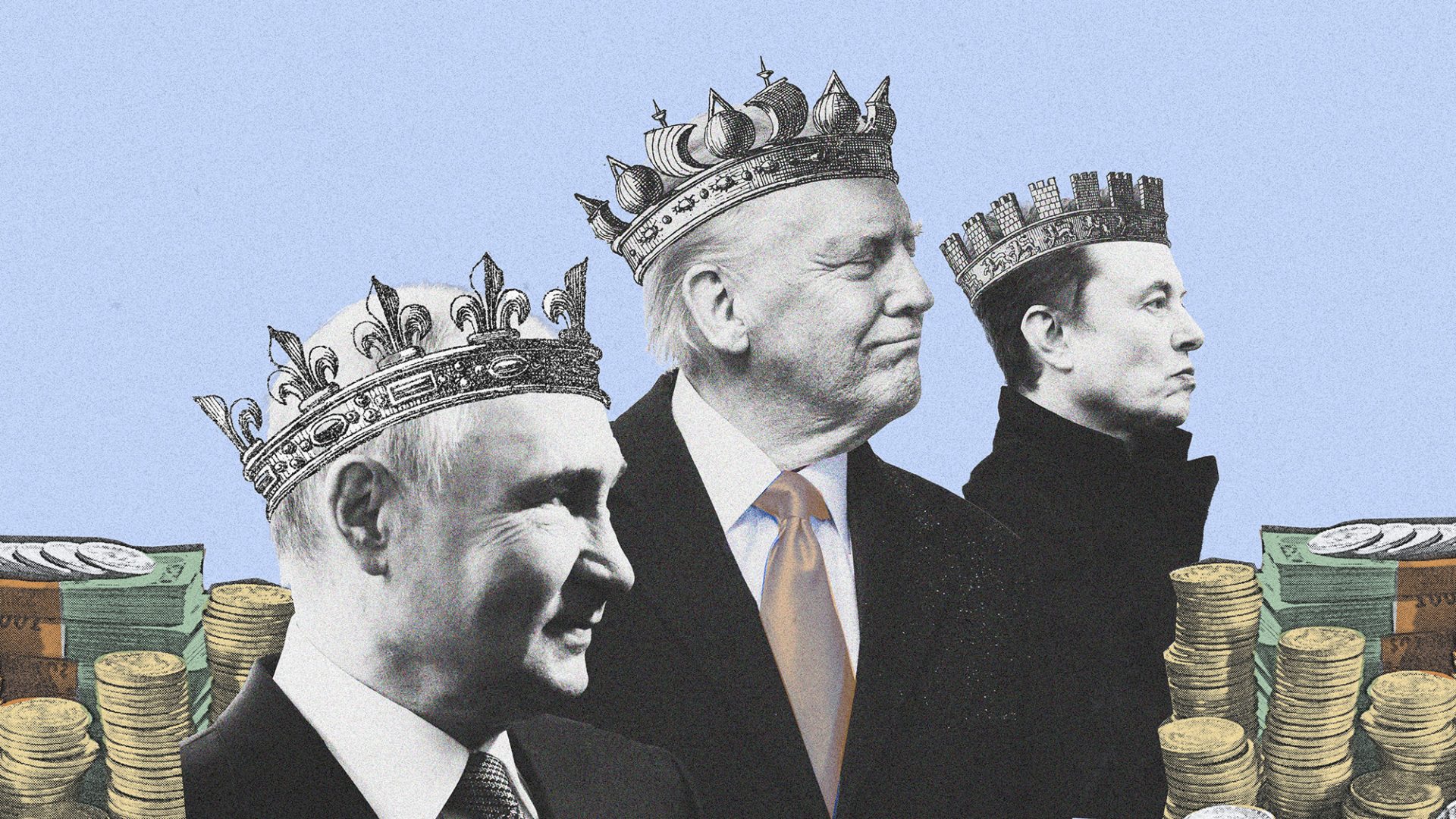How exactly do you destroy a successful, democratic nation? The barrister, judge and historian Jonathan Sumption raises this question in his latest book The Challenges of Democracy. “By some definitions, nearly three-quarters of the world’s population today live under authoritarian regimes of one kind or another,” he writes. “Will Britain be one of them?”
By the end of this short, rather high-temperature book, it’s clear that Sumption feels we’re already most of the way there, and one of the chief culprits is what he terms “the growing aversion of western societies to risk.” This kind of risk aversion, “and the fear that goes with it… are a standing invitation to authoritarian government.”
If we hold governments responsible for everything in our lives, he argues, then government will inevitably step in to “take away our autonomy”, claiming that the crowning example of this phenomenon came during Covid. Lockdowns, writes Sumption, amounted to “a sustained attack on our humanity”, and the political stridency with which they were imposed had a “totalitarian flavour”.
Sumption writes: “It is widely assumed that this is a phase that will pass when Covid-19 disappears (if it ever does). I am afraid that this is an illusion. We have turned a corner and it will not be easy to go back.”
He sees another threat to the political character of our nation being posed by environmentalists, particularly Extinction Rebellion, whose demonstrations are “based on the notion that the campaigners’ point of view is the only legitimate one.” This, says Sumption, “is the mentality of terrorists”.
As for the “campaign against Kathleen Stock at the University of Sussex”, this, he says, “suggests that intellectual persecution is alive even in our universities for the first time, perhaps, since Thomas Cranmer was burned at the stake.” Stock was bullied from her position by trans rights activists – in Sumption’s view, protests of this kind are typical of the way authoritarianism creeps up on unsuspecting societies. It is, he says, a threat from within.
What emerges is a picture of a frightened, timid society, let down by the failure of generations of politicians to deliver on their promises. The post-war years of spending and reconstruction led to the dangerous misconception that government munificence could continue indefinitely, when of course, it could not. “The shattering of optimism,” says Sumption, is “a dangerous moment in the life of any community”.
This growing sense of political disillusionment has driven people away from democratic politics, and towards “the intolerant ideologies”, that “have swept through the worlds of learning, literature and the performing arts.” The aim of these ideologies, says Sumption, is “the reform of modern society so as to redress perceived inequalities, notably of race.”
This leads him straight to the subject of the British empire. It was, he says, “a remarkable administrative and cultural phenomenon,” which, in its last century and a half, was “infused with a strong streak of humanitarianism and idealism.” The attempt to frame the empire in a negative light, he says, is nothing but postmodern nonsense.
It is remarkable that, unlike lockdown, Sumption does not regard empire as having had any sort of “totalitarian flavour”. Environmental protesters “bully people and disrupt their lives”, which qualifies them as terroristic. But the occupation and appropriation of entire nations doesn’t come in for the same criticism.
And anyway, the environmental campaigners and the racial justice mob, he says, are all wasting their time. That judgement springs from Sumption’s “profound scepticism about the capacity of people to reshape the destinies of their world in accordance with their own preferences, moral or otherwise.” There is only the law, which he says is there for one purpose: “it should enable us to live together in society”. All those activist lawyers, so fixated on “rights” are wide of the mark. It’s not the job of the law to promote ideals like that.
It’s a diverting and erudite book, and the section on Sumption;s experience as a judge in Hong Kong during the Beijing clampdown is well done. But as an analysis of how democracy slides towards authoritarianism, it doesn’t work.
The book’s main problem is quite straight-forward: with his attacks on wokeness, on activists and lockdowns, Sumption is making exactly the same arguments as the authoritarians who currently run the US. In other words, the most acute present threat to the western democratic order is founded on the very arguments that Sumption makes.
What’s more, his starting assumption, that “democracies fail from within” – a claim also made at the recent Munich security summit by vice president JD Vance – overlooks the current threat to Ukrainian democracy, which is entirely external. And as for other issues that can drive political discontent, such as inequality, Sumption accepts that it can be “socially disruptive”, but whether it has reached the point of becoming a serious problem: “I doubt it”.
When it comes to inequality, “I do not accept the various theories which writers like Thomas Piketty… have made fashionable”. The word “fashionable” is an odd choice – as if societal ills and attempts to cure them were nothing but passing fads. But then if, like Sumption, you don’t believe that people can ever make meaningful change, then it helps if you don’t think anything needs changing in the first place.
The French writer and economist Thomas Piketty represents the flip side of the Sumption coin. In his latest book, Equality, a kind of Socratic dialogue which finds him in conversation with the Harvard philosopher Michael Sandel, Piketty describes how the movement of societies away from government by privileged aristocracy, driven on by the “enormous political demand for equality of rights”, has been the crucial force in what he calls “the rise of democratic awareness”. This argument alone would be enough to make Sumption’s hair stand on end.
But that trajectory towards democracy has been thrown off course by the huge accumulation of wealth that started across the west with the Thatcher-Reagan deregulation of the 1980s. Now, Sandel points out, “in Europe, the richest 10% take in more than a third of the income and own more than half of the property. In the US, inequalities are even starker”.
This leads to a phenomenon that Piketty calls “monetary distance”. “If by spending the equivalent of one hour of my income I can buy your entire year of work, that implies a kind of social distance in human relations that raise very serious concerns and questions.”
There are two possible answers to inequality, Sandel suggests – either you tax the wealthy and redistribute the money; or you make money worth less. “Human goods,” he suggests, “could be decommodified”, which would mean throwing open access to education, healthcare and housing. “Suppose we could decommodify social life to such an extent that the only real advantage of being wealthy would be the ability to buy things like yachts.”
It’s a radical idea, but then as Piketty points out, the idea that everyone should vote was once considered pretty radical. In Sweden, until the first world war, only the top 20% of the male population could vote, “and within this top 20% you had between 1 and 100 votes, depending on your wealth”.
That meant that in some municipalities, “only one individual had more than 50% of the vote and was a perfectly legal dictator”. The degree of change since that time shows, Piketty says, that “nothing is frozen”. This is the very opposite of Sumption’s view.
The end result of the deregulation of the 1980s and the growth of finance was, Sandel points out, the global financial crisis of 2008. “In that moment of crisis, Obama had the choice of whether to restructure the relation of finance to the economy or to reinstate it, and he chose the second,” says Sandel.
“This was a decisive moment,” says Sandel, “because it represented a departure from the civic idealism that he [Obama] had inspired as a candidate in 2008, not only in the US but around the world.” Leaving homeowners to fend for themselves when the banks were bailed out “prompted widespread anger.” This led to the Occupy movement, the Tea Party and “laid the groundwork for the right-wing version of populism – of Trump”.
The outrage over the bailouts and the deepening sense within the US that the nation had been stiffed by the coastal elites was bad enough. But it crossed over with a shift that was under way in the western view of success.
A generation of meritocrats, most of them from the centre left, had promoted the idea that the only way to get ahead in life was to attend university and get a degree, which would entitle you to a highly-paid position in the upper ranks of the corporate world. As Sandel notes, this inevitably leads to a sense of “hubris among the winners and humiliation among those left behind”, who are told that “their failure, their struggles, were their own fault”.
The message was, you can make it if you try. However, “what the elites missed was the insult implicit in their advice,” says Sandel. “The insult was this: ‘if you didn’t get a degree, if you don’t have a university diploma, and if you’re struggling in the new economy, your failure must be your fault’.” That message was central to the sense of disillusionment and anger that led American voters to conclude that the old ways no longer worked. From there it is only a short political step to populism
There is, Sandel says, a fundamental relationship between ownership and politics. He recalls the striking example given by Rousseau, who wrote that, “the first man, who, after enclosing a piece of ground took it into his head to say ‘This is mine,’ and found people simple enough to believe him, was the true founder of civil society.”
“How many crimes, how many wars, how many misfortunes and horrors could have been spared if someone had ‘pulled up the stakes and cried to his fellows ‘Don’t listen to this imposter. You are lost if you forget that the fruits of the earth belong equally to us all.”
It is a remarkable example, in that it both accepts the human acquisitive instinct while warning of its potential dangers. That acknowledgement of fallibility is the fundamental insight that runs through the Sandel-Piketty book, and which allows them to speculate on how that fallibility might be offset. Their solution is perhaps not so surprising: tax the rich, reduce the power money confers on unaccountable individuals and increase the rights of the less well off.
On the one hand it sounds like completely unrealistic lefty idealism. But on the other, the presence of Elon Musk in the White House and the rash of billionaires in the Trump administration, suggests Piketty and Sandel have got a point: something has gone very wrong in the balance between wealth and political power. That relationship must be fixed.
In contrast, Sumption’s argument has no space in it for action – or for progress. That’s why, for all its erudition and insight, his book amounts to a cleverly-put argument for doing nothing. Meanwhile, the edifice of western democracy is being destroyed by the whim of billionaires.
As Sandel and Piketty recognise, the link between money and power must be severed. If it is not, the process that Piketty described of our escape from aristocratic control would go into reverse. We would end up living in a world of kings – and you just know that Trump, Musk and Putin are the kinds of men who would happily crown themselves.
The Challenges of Democracy, by Jonathan Sumption (Profile)
Equality, what it means and why it matters, by Thomas Piketty and Michael Sandel (Polity Press)




